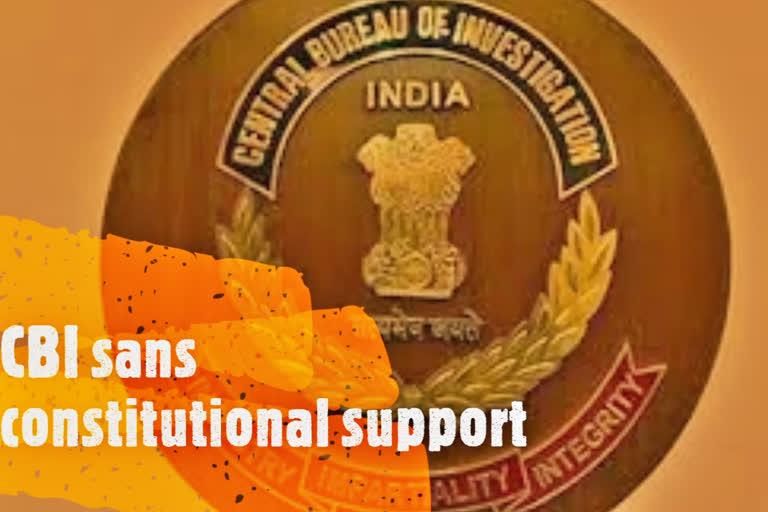Hyderabad (Telangana):A mention of that organization’s name fills the corrupted, terrorists and criminals with dread. That organization is not in India but in the USA. And the name is Federal Bureau of Investigation (FBI). There is an investigating agency in our country with a similar name but the similarity ends there. There is criticism that this agency which goes by the name of Central Bureau of Investigation (CBI) is a puppet in the hands of the ruling party. There are allegations that the ruling party uses it to create panic among opposition parties.
The CBI’s situation is similar to that of Bhishma on death bed. It is still functional due to the Supreme Court’s stay order. While a judgement given by the Gauhati High Court 6 years ago pushed CBI to the brink of death, the organization is barely functioning thanks to the SC. On November 6 th, 2013, the Gauhati High Court had struck down the resolution through which CBI was set up as unconstitutional. If any High Court declares an organization or bill as unconstitutional, the rule will be applicable nationwide.
Also read: Sheena Bora murder case: Court to pass order on Indrani's bail plea on Dec 10
The Gauhati High Court’s judgement came as a blow to the central government, which allotted thousands of cases to CBI and saw to it that the punishment was meted out in most of them. It immediately sent the former attorney general Gulam Vahanvaty to the then chief justice of Supreme Court, P. Sathasivam. Since the court was closed for vacation, Vahanvaty met the chief justice in his residence. Justice Sathasivam, who understood the severity of the case conducted the case hearing in his residence and issued a stay on the High Court’s order. It has been 6 years since this incident and CBI is still alive due to SC’s stay. Months before the Gauhati HC’s order, the SC termed CBI as a caged bird but realized that it must be functional until an effective alternative is established.
The Gauhati HC has passed the judgement that CBI is unconstitutional upon the plea of a petitioner called Navendra Kumar. Kumar, who was being investigated by CBI for cases filed against him, challenged the organization’s constitution. He filed a writ petition stating that CBI is not a constitutional organ but was created by a simple government resolution. He argued that CBI has no authority to carry out arrests, raids or file charge sheets. The altercation among several top CBI officials before the recent Lok Sabha elections and resolutions passed by several governments blocking CBI’s entry into their respective states shows the brittle foundations of the central agency. Recently, Alok Verma and Rakesh Asthana, who are considered the top bosses of CBI made corruption allegations against each other. Some officials were caught taking bribes and a team which was investigating corruption charges was suddenly transferred at midnight. All these instances tarnished the image of CBI. Ruling parties using CBI as a weapon against their opponents became a norm and the judiciary is forced to interfere time and again.
The history of CBI is worth mentioning here. During World War II, the British Raj made issued a special ordinance to set up the Special Police Establishment (SPE) which later became CBI. In 1946, the Delhi Special Police Establishment Act (DSPE) was brought in the place of this special ordinance. In the beginning, SPE was limited to investigating corruption and bribery in the drinking water supply department. Later, the SPE’s scope was enlarged to cover all the government departments and union territories of India.
Also read: CBI books its own officer for extortion
In 1963, a resolution by the Home Ministry led to the formation of CBI. Section 6 of DSPE states that the respective state government’s consent is needed to carry out investigations in a state. The CBI can investigate in union territories and central government organizations. It can investigate the orders issued by the Supreme and High Courts. But the state governments’ consent is compulsory to investigate in the respective states.
